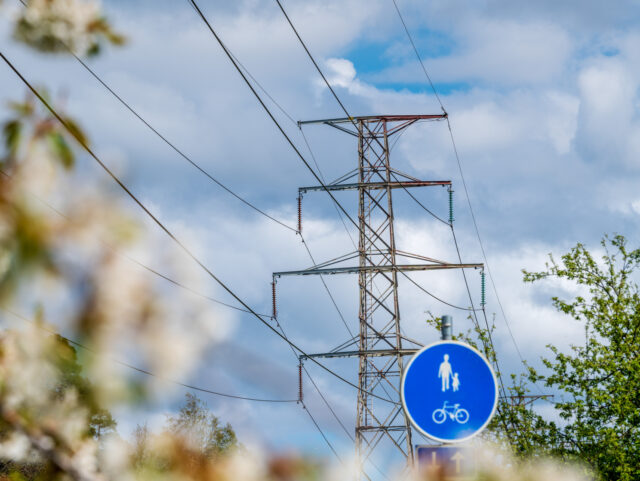Swedish electricity prices have increased 400 per cent since last year as costs for other goods such as food and alcoholic beverages continue to rise as well.
On Wednesday, some parts part of southern Sweden saw record prices per kilowatt hour for electricity, with reports of electricity costing as much as 7 kronor (56 pence/67 cents U.S.) per kilowatt hour.
The rise in price is said to be linked both to high gas prices in the rest of Europe and low electrical output from Sweden’s own means of energy production such as wind power, broadcaster SVT reports.
Fredrik Beskow, a market analyst at the Swedish Energy Market Inspectorate, commented on the rise in prices, saying that German energy demand has played a role in the increase due to a shortage of supplies of Russian natural gas.
“Germany needs to replace the gas with some other type of power, and then the demand for electricity has gone up,” Beskow said.
Inflation within the Eurozone has hit yet another record high as the currency bloc struggles to deal with the ongoing gas crisis. https://t.co/5ZdzYJhWFT
— Breitbart News (@BreitbartNews) August 1, 2022
Many Swedish electrical companies have also abolished fixed-price contracts due to instability in the energy market, as companies do not want to lose money if princes continue to rapidly rise.
As prices rise to record highs, the Swedish government has promised a 30 billion kronor (£2.39 billion/$2.889 billion) aid package to help households cope with the rising costs over the winter.
The money will be collected from payments made to Svenska kraftnät, the state-run corporation that manages Sweden’s electrical grid, as the government predicts the authority will have a surplus of 60 billion kronor this year.
“Electricity prices have been high since last autumn. At its core, of course, is Russia’s brutal invasion of Ukraine, but the truth is that Russia’s actions in the energy market were created long before the war,” Swedish prime minster Magdalena Andersson said on Wednesday.
The 30 billion kronor will be used to immediately help reduce the costs of electricity for Swedish consumers, either directly or indirectly.
“The higher the electricity prices, the larger the amount will be involved. This is a completely new way of thinking and the background is that the market is not created for such extreme situations as we have right now,” Prime Minister Andersson said.
Energy Crisis: State Prime Minister Declares Green Energy Transition has ‘Failed’ https://t.co/6rMUnj4KCD
— Breitbart London (@BreitbartLondon) August 2, 2022
Food prices are also rising alongside electricity prices in Sweden as Statistic Sweden reported that prices of food and non-alcoholic beverages rose by 13.5 per cent in July an increase from the 11.2 per cent rise in June and a new record monthly high.
“It is an extreme situation that we are seeing and that has been fueled a lot by the war in Ukraine when we now have very high food inflation. Many behaviours that we are now receiving are reminiscent of what we can see during a recession,” Per Strömberg, CEO of the ICA Group, one of Sweden’s leading food retailers, stated.
“We can expect continued high food inflation this year and certainly next year,” Strömberg said and added, “Our assessment is that they will continue to rise somewhat, but it is difficult as always to give a long-term forecast. It depends on the development in Ukraine, it depends on how the harvests will come in, there are very many factors that come into play but it is reasonable to think that food inflation on a full-year basis will end up at ten per cent or above.”
Let Them Eat Cake: Macron Blasted for Jet-Skiing While Telling Public to Save Energy https://t.co/02sGf3WHnh
— Breitbart London (@BreitbartLondon) August 14, 2022

COMMENTS
Please let us know if you're having issues with commenting.